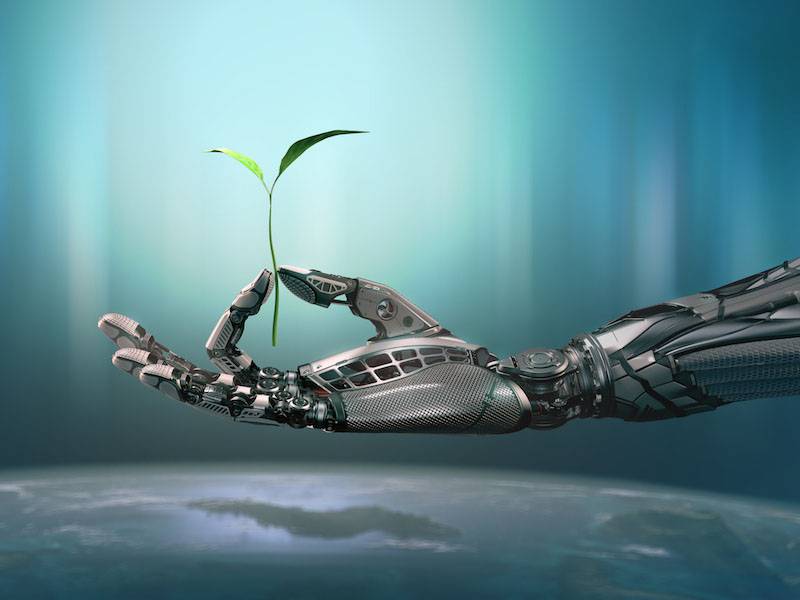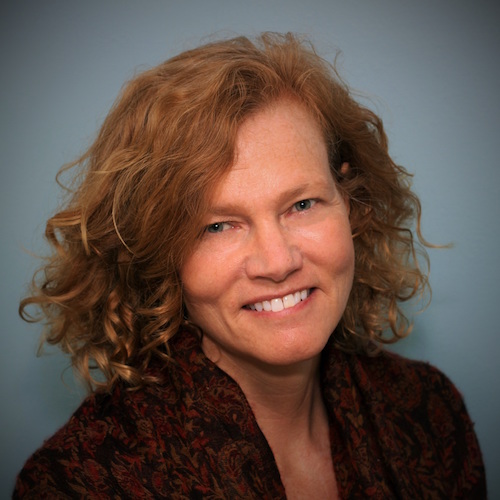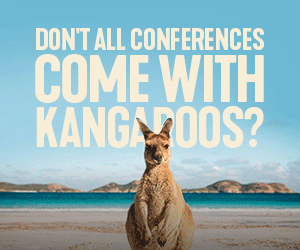Future Earth: “With a Conscious Collective Effort We Can Drive Positive Change”

Future Earth is an international network, with offices in 20 countries, of researchers and innovators working to advance the sustainability agenda. Montréal is one of five cities among which the secretariat is distributed, hosting the executive office. The organisation recently launched a new initiative called ‘Sustainability in the Digital Age’ (SDA) and anchored it in Montréal because of the city's artificial intelligence, ethics and sustainability sectors.
HQ interviewed the executive director Amy Luers.
Headquarters: How and when was SDA born?
Amy Luers: The SDA was first started as a Future Earth initiative. Traditionally, the digital sector had not been on the Future Earth Agenda. Personally, I have a long history working in both digital and sustainability issues. When I moved to Montréal to become the Executive Director of Future Earth, I was excited to take this opportunity to explore this intersection in depth. Back in 2017, I started to engage with leaders from the AI and digital sector here in Quebec and around the world to begin to shape a vision for how we could contribute to this space.
Some of the first efforts of the budding SDA team was leveraging digital technologies to capture collective intelligence about global systemic challenges. To do this, we worked with MIT Center for Collective Intelligence to build Futures CoLab (a platform, process and international network for facilitated dialogues).
The underlying motivator for SDA is that we need widespread societal transformative system changes. The digital age is already driving societal transformations at an unprecedented scale and pace. While it is not clear where these transformations will lead society, we believe with a conscious collective effort we can drive the positive transformative system changes needed to tackle the climate crisis.
HQ: Why did you choose Montréal for the executive office?
AL: Montréal is home to a unique combination of major universities, numerous private and non-profit, and intergovernmental institutions focused on sustainability, and it is a dynamic international hug for AI and digital technology development and innovation more broadly. Furthermore, the Future Earth Global Hub in Montréal has, over the past five years, developed a strong network of collaborators in and around Montréal. All these factors make Montréal the ideal location in which to root SDA, which is based there but has a global reach as well as regional centres and offices. Through this extensive network, Sustainability in the Digital Age is able to reach a huge diversity of stakeholders around the globe and to engage them as appropriate in various endeavours throughout the four main streams of work.
HQ: What do you think is particularly challenging when we talk about sustainability?
AL: I see the biggest challenges of vulnerability are best characterised by the concept of VUCA – vulnerability, uncertainty, complexity, ambiguity – a term first coined by the military but subsequently adopted by business and leadership training more broadly. My optimism lies in the opportunities to leverage AI and the digital sector to help humans make sense of our VUCA world and transform in ways that enables us to tackle the huge challenges presented by the changing climate, increasing inequality, and the degradation of life support systems. At the core of my optimism is humanity. We are poised to work together to drive the transformative system changes that the kids on the streets are calling for today “systems change not climate change.”
HQ: Can you please provide us with some examples of current projects?
AL: The goal of SDA is to leverage the digital age to drive the transformative systems changes needed to tackle climate change and the broader sustainable development goals. With this goal in mind, we focus our efforts on four key areas:
- Research and innovation
The first phase of SDA has focused on developing the Digital Disruptions for Sustainability Agenda, exploring digitally enabled levers of systems change. In September 2019, CIFAR supported a workshop in Montréal as part of their AI & Society series. Stemming from this workshop, we are currently finalising a special issue of the IEEE Technology and Society Magazine which is due to be published in June 2020. The special issue will highlight cutting edge research and innovation on leveraging capabilities of the digital age from a diversity of perspectives, building on discussions held during the workshop.
- Training and networks
Many projects are in the works within this stream of work. We now have confirmed funding to set up a training program together with partners in Montréal that will help us build the next generation of leaders at the science-policy-technology interface, around the two biggest forces shaping humanity’s destiny: global environmental changes and the digital revolution. This training program will hone the skills of young leaders through a variety of mechanisms including workshops, summer schools, and internship opportunities.
- Policy and best practices
Through our international engagement over the last year and a half, we have defined a set of priority actions that need to be taken in the near-term:
- Establish a social contract for the digital age;
- Promote inclusion as a touchstone of the digital age;
- Establish foundational standards for the digital sector;
- Expand open access to high-public-value data;
- Expand public-private partnerships to build our digital future;
- Reduce environmental impacts of the digital age;
- Foster cross-sectoral collaboration and innovation;
- Invest in targeted communication, engagement, and education
SDA will advance these through policy analysis, promoting best practices, and building partnerships and platforms to tackle them. These will be done through join statement and policy analysis. Some are already in development and will be released shortly. The enabling conditions will also be developed through strategic partners with implementing agencies.
- Collective foresight and intelligence
Together with the MIT Center for Collective Intelligence, the Futures CoLab project brings together an international network of subject matter experts to participate in bespoke, facilitated dialogues through an online platform. In the past, Futures CoLab exercises have involved scenario development, employing a structured process to draw out and integrate diverse knowledge to outline a range of plausible futures related to specific challenges, as well as facilitating more open-ended dialogues about identifying opportunities for positive transformative change. Plans for the future include building on the 2019 Future Earth Global Risks Perceptions report to conduct a Futures CoLab foresight exercise on risk. We are also exploring opportunities to scale up the Futures CoLab project.
HQ: What are your future plans?
AL: SDA continues to grow as a pivotal contribution to the growing initiatives in the digital and sustainability space. A UNEP led initiative recently identified SDA as one of the top 20 international programs in this space. Our unique contribution is around the focus on cross-cutting transformative systems changes. Our future plans are to further expand our work streams in the four areas listed above. The realities unfolding with the COVD-19 crisis are making the issues we are focused on even more critical. In the coming months we will be assessing our work plans in each of the four areas to respond to the rapidly changing circumstances.

FOR MORE INFO:
Email: sda@futureearth.org
Website: www.futureearth.org
Article included in our May issue of Hedquarters Magazine (#94)
Other Articles
About Us
Supported by the Union of International Associations (UIA), the International Association of Professional Congress Organisers (IAPCO) and the Interel Group, the global public affairs and association management consultancy, Headquarters Magazines serve the needs of international associations organising worldwide congresses.















